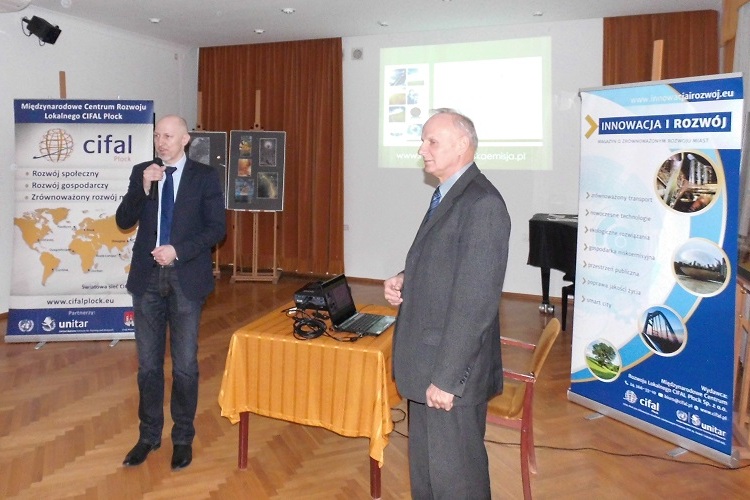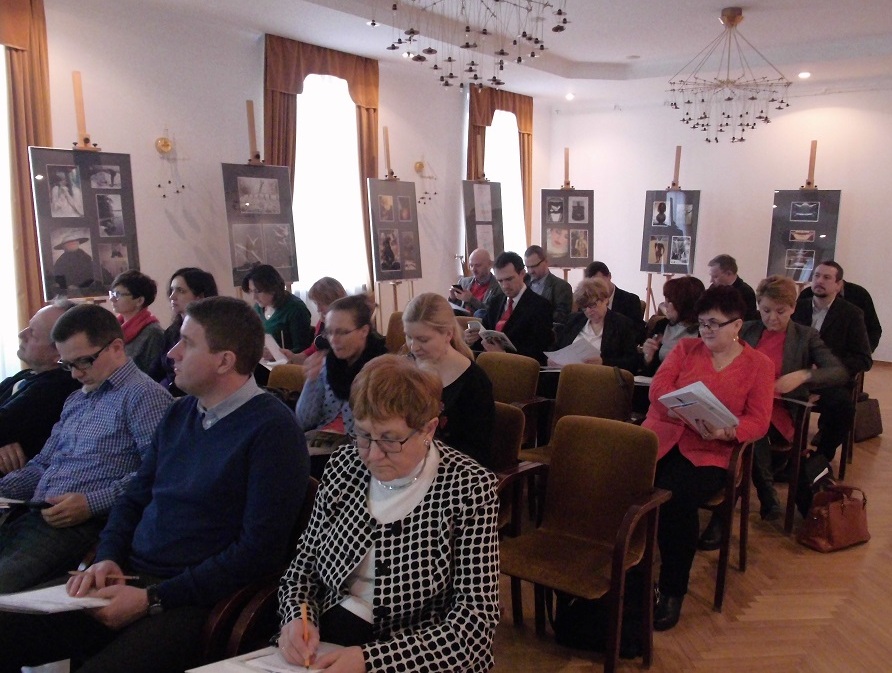CIFAL Plock Organized the Workshop “Renew Energy –new mission, low emission”
 2 March 2015, Płock, Poland – CIFAL Płock in cooperation with the National Association of Initiatives organized a workshop on Renew Energy- new mission, low emission on 26 - 27 February 2015 in Plock, Poland. The event brought together 30 participants from Polish municipalities, national government and NGOs to discuss and share ideas about the challenge of sustainable energy development.
2 March 2015, Płock, Poland – CIFAL Płock in cooperation with the National Association of Initiatives organized a workshop on Renew Energy- new mission, low emission on 26 - 27 February 2015 in Plock, Poland. The event brought together 30 participants from Polish municipalities, national government and NGOs to discuss and share ideas about the challenge of sustainable energy development.
During the opening ceremony, Mr. Krzysztof Buczkowski, Director of CIFAL Płock, explained the objectives of the workshop and highlighted the importance of fulfilling the European Union’s requirements, which look at cost-efficient ways to make the European economy more climate-friendly and less energy-consuming.
The main goal of the event was to explain national and EU policies in the field of energy and how to integrate Green Public Procurement (GPP) in Sustainable Energy Action Plans (SEAPs). Furthermore, the event provided an overview of the Regional Operational Programme, including the perspective of the upcoming programming period 2014 - 2020. The main focus areas will be thermo-modernisation of public buildings and RES investments.
Ms. Ewa Winkowska, Expert of the Polish National Energy Conservation Agency (KAPE S.A.), presented on the structural funds of the operational programme 2014 - 2020, which will support 85% of eligible costs related to the development or update of SEAPs and low-emission plans and promotion of the low carbon economy.
 The second part of the workshop focused on presenting a best practice of a low emission community in Kisielice, Poland. Mr. Tomasz Koprowiak, Former Mayor of Kicielice introduced his idea of building a low-carbon society with low-emission buildings, and intelligent heating and cooling systems. He mentioned that many of these technologies exist today in his community but need to be further developed. Mr. Koprowiak received the European Commission’s ManagEnergy Award 2014 for supporting local and regional sustainable energy actions.
The second part of the workshop focused on presenting a best practice of a low emission community in Kisielice, Poland. Mr. Tomasz Koprowiak, Former Mayor of Kicielice introduced his idea of building a low-carbon society with low-emission buildings, and intelligent heating and cooling systems. He mentioned that many of these technologies exist today in his community but need to be further developed. Mr. Koprowiak received the European Commission’s ManagEnergy Award 2014 for supporting local and regional sustainable energy actions.
At the end of workshop, participants engaged in a discussion and agreed that transition to a low-carbon society would boost Europe's economy thanks to increased innovation and investment in clean technologies and low- or zero-carbon energy.

